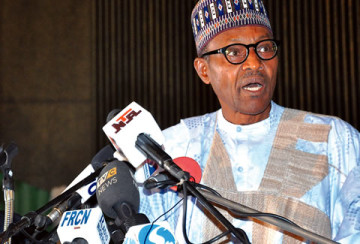A participant coined it as “sleeping with the government”. It is another way of saying building strategic alliance with government when conducting advocacy. It was my 1st time of hearing that phrase “sleeping with the government” at a 3 day expert meeting organized by Population Action International (PAI) on Family Planning (FP) Budget Advocacy in Sub-Saharan Africa that took place in South Africa from March 9-11, 2016 in Valverde Hotel at the outskirt of Pretoria.
The meeting aimed to discuss the status of domestic resource mobilization for family planning services and supplies in Africa. Civil society organizations from Eastern, Central and Southern African Region (ECSA) including Tanzania, Malawi, Uganda, Kenya and Zambia were in the meeting. When asked how some of the groups managed to advocate and secure an annual budget performance of over 75% for family planning, the answer was simple “sleeping with the government”. All the 5 countries listed above operate costed implementation plan for family planning and implementation were at over 75% both in allocation and releases of funds. The groups as part of their engagement with their various governments, deviced different advocacy strategies to ensure funds are release on time. They organized themselves under a strong coalition, developed key advocacy messages and used both informal and formal channels to reach out to policy makers and political actors. What can we learn from these 5 countries to improve Nigeria’s family planning commitment and implementation?
A news story (https://healthreporters.info/2015/10/12/nigeria-released-only-1-6-of-n750-m-recommended-amount-for-family-planning-in-2014/ ) observed that “to ensure that every woman has access to reproductive health and family planning commodities, the Nigerian government in 2013 committed N510 million which was about 0.19% of the total health budget to fund family planning, but no amount was release. In 2014, N414.5 million was allocated which was about 0.19% of the total health budget, even though N750.3 million was the required amount per capita for Family planning, the government only provided N11.83million (1.6%) in 2014 to cater for the reproductive health needs of over 68 million females of the nation’s populace”. The foregoing has revealed that there were and still are challenges with respect to family planning budget allocation and releases in Nigeria.
It is still fresh in our minds that the Nigerian government in 2010 had made commitments to release US$3 million annually for the procurement of family planning commodities, and later at the London Summit in 2012 made an additional commitment of US $ 8.35 million every year over a period of four years for reproductive health commodities including contraceptives. Information available to advocates revealed that the government has not fulfilled its commitments.
In one of my previous article on these pages ‘Our Health Issue isn’t in the 2016 Budget’ I had this to say with respect to 2016 budget in Nigeria & Family Planning “Aminu you must write about the National Health Act where it’s says 1% of the Nigerian total consolidated revenue must be allocated to health budget yearly and it is not in the 2016 budget yet, what is wrong with our President that promised Nigerians change——one CSO leader told me that he is disappointed that even though Nigeria committed to London Summit declaration for Family Planning which aimed at raising domestic funding to about 300% yet the 2016 budget is silent about financing family planning”.
Let me hasten to add that at the 4th International Conference on Family Planning hosted in Nusa Dua by Indonesian Government early this year it was reported that “Indonesia’s national family planning initiatives have doubled the contraceptive prevalence rate to nearly 60 percent between 1976 and 2002 and decreased the fertility rate by half. The country has quadrupled its budget allocation for family planning, from $65.9 million in 2006 to $263.7 million in 2014, which would enable better health worker training and the provision of free family planning services through the country’s new universal health care system.” Can this investment encourage Nigeria?
In another development the FP2020 2014-15 Progress Report has observed that “three years ago, we made a promise. At the 2012 London Summit on Family Planning, we pledged to bring modern contraception within reach of an additional 120 million women and girls by the year 2020. As we approach the halfway point to 2020, we can see clearly how much we’ve accomplished together, how much is left to do, and whether we’re on track for our goal.”
In conclusion Nigerian civil society organizations advocating for budget line and adequate allocation to family planning should not deter but to mobilize and build a strong coalition to engage government meaningfully to meet its family planning commitments.
All comments to Dr Aminu Magashi Garba Coordinator Africa Health Budget Network & Publisher Health Reporters (healthweekly@yahoo.com)




